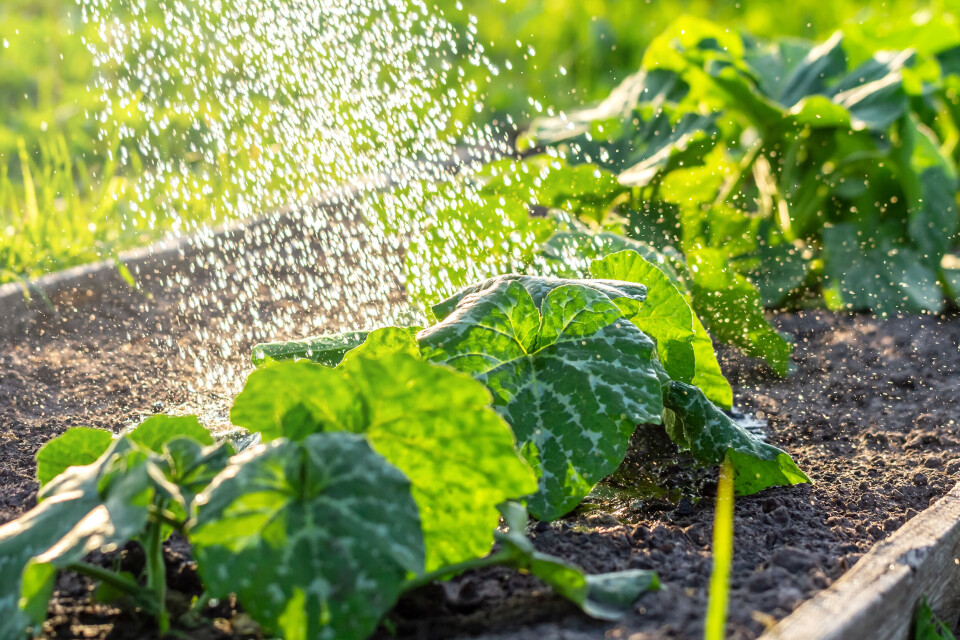-
Police across France hunt abandoned cars to free up spaces in urban areas
Vehicles cannot be parked on a public road in the same place for more than seven days
-
Senators examine proposal to guarantee access to cash machines in rural areas of France
Some 18.6% of French communes had access to at least one local ATM in 2024
-
French weekly weather forecast February 9-13: Unsettled with winds of up to 100km/h
Flood risk may increase in several regions and mountain conditions set to worsen
South-west France residents cannot water gardens for three months
The population of two Dordogne communes will not be allowed to wash their cars or fill their pools either, because of supply issues

Drought restrictions have been spreading across France in recent weeks, but now two communes in Dordogne have been told not to use water for non-essential purposes for a different reason related to supply problems.
Residents of Marnac and Berbiguières will not be allowed to water their gardens, wash their cars or fill their swimming pools until October 31, in order to save the drinking water available.
This is because the local borehole is not currently being used because of “cloudiness,” the prefecture has said.
Analysis of water samples did not show anything abnormal, but an alternative water source has been found for the moment, and the prefecture is encouraging residents to use bottled water to conserve supply.
Read more: Bottled or tap: How do you take your water in France?
Read more: Drought map update: See the French departments with water restrictions
July was the driest since 1959
July 2022 was the driest since July 1959, Ecological Transition Minister Christophe Béchu has said, adding that the situation is now “critical”.
“Only 7.8mm of water fell,” over the month, and “we have a rainfall deficit of 88% in comparison to what would have been necessary,” Mr Béchu said.
“An aggravating factor is that we are at the beginning of [another] heatwave which creates a dryness which saps water reserves while increasing demand [for water].”
Read more: Five French departments on heatwave alert as high temperatures return
“We are in a critical situation; this is a new sign that climate change is not a fad but a reality which is in the process of establishing itself.”
Mr Béchu added that the state has allocated €100million to water agencies to help them develop resilience measures and water restrictions if necessary.
When asked if there were places where the situation was more worrying than in others, Mr Béchu said: “It is worrying me everywhere. You have villages where there is no drinking water and where water needs to be brought to them.
“You have animals in some mountain pastures which don’t have drinking water, and so have to come down to lower levels.
“You obviously have issues with agriculture and behind that there is the question of food [supply], which quickly comes into play.
“Last Friday I signed a decree which will mean that in periods where water supplies are plentiful [authorities] can look at reserves and potentially take measures then and not just in summer.
“We cannot wait for the first effects of shortages [to be felt]. We need to get used to fighting against waste and to saving water even in the winter and autumn.
“Over the past few years, we have managed to reduce our wastage and water consumption by nearly 400 million cubic metres.”
Communes have to wait for supply from water lorries
Water supplies have fallen so low in some areas that residents have to wait for deliveries from a water truck.
This routine is always necessary in the summer for residents of islands such as Porquerolles and Port-Cros off the coast of Hyères (Var), but this year they have been relying on the service since early in the year.
While the Porquerolles deliveries normally begin in mid June, this year they started on February 23.
Communes in Haute-Saône have also had to turn to water deliveries this summer.
Thierry Hubert, from the departmental authority, said: “In the winter, we do not always have enough water. We talk about snowfall, but that does not necessarily go into water supplies.”
He added that the “ageing distribution network” results in “significant losses”, which go back into the natural environment but cannot be used by residents.
The commune of Bouchet-Saint-Nicolas (Haute-Loire) has also had to resort to water deliveries from lorries since mid May this year.
Related articles
Nine firefighters injured tackling new wildfire in south of France
‘Un soleil de plomb’: Our French expression of the week
Grape harvest begins earlier than ever in south France due to heat
























